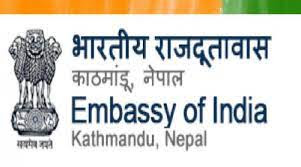Here's the experience of a candidate who appeared in the Written Examination of B.P. Koirala India- Nepal Foundation for the position of translator.
B.P. Koirala India- Nepal Foundation had advertised vacancy for the position of translator on 16th March 2021. It conducted the written exam for the same on 12th April at Nepal-Bharat Library, NAC Building, New Road Gate.
In the written examination, candidates were asked to translate a piece of English text to Nepali, Nepali passage (press release) to English, to write essay on the socio-economic situation of Nepal post Covid-19 (in English) and essay on ways to strengthen bilateral relations between Nepal and India (in Nepali). The questions were thoughtfully set to assess the overall command of both Nepali and English languages of the candidates.
The Nepali text that was given to translate to English was taken from current constitution of Nepal (76:-Constitution of Council of Ministers), which was meant to check the candidates' ability to translate legal documents. Here's the Nepali Text that was given and its translated version, taken from the website of Nepal Law Commission.
The Joint Commission comprehensively reviewed all aspects of multifaceted cooperation between the two countries and explored ways to further strengthen the traditionally close and friendly ties. Both sides discussed several areas of cooperation including in the areas of connectivity, economy and trade, power, oil and gas, water resources, political and security issues, border management, development partnership, tourism, culture, education and capacity building. The significant and concrete progress made since the last meeting of the Joint Commission in taking forward several bilateral initiatives was acknowledged.
The close cooperation between the two sides in combating Covid-19 pandemic in the region was noted. Nepal congratulated India on the remarkable success in production of Covishield and Covaxin vaccines in India and requested for early provision of vaccines to Nepal.
And third question asked us to write 150 words essay about the socio-economic situation of Nepal post Covid-19 in English, and final question asked us to write an essay in Nepali, and the question was नेपाल भारत सम्बन्धलाई थप बलियो गर्न के गर्नुपर्ला आफ्नो बिचारहरु लेख्नुहोस्।
Interview Experience
On the interview day first as soon as I got in the NAC Library, I was taken to the computer and my Nepali and English typing skills were tested. I was given 5 minutes to type one paragraph in Nepali and one paragraph in English. Candidates were asked to type as much as they can within the given timeframe. For the Nepali, I used unicode Nepali to type, but the font they happen to use was Preeti. And the paragraphs were the same that were given in the written examination.
After typing the took a printout of the paragraphs and gave the paper to the interviewers. The interviewer then called for for the interview. There was one Nepali interviewer and another Indian.
First I was asked to tell me about myself...
He also asked questions such as what kind of political course of action would be good for Nepal? How do you see the recent future of Nepal? This job requires working early sometimes are you flexible?
And the Nepali interviewer asked if I read Nepali newspapers regularly and Name of 3 major political parties of Nepal. In the end he also asked about the difference between two Nepali words Amantran and Mantrana.



